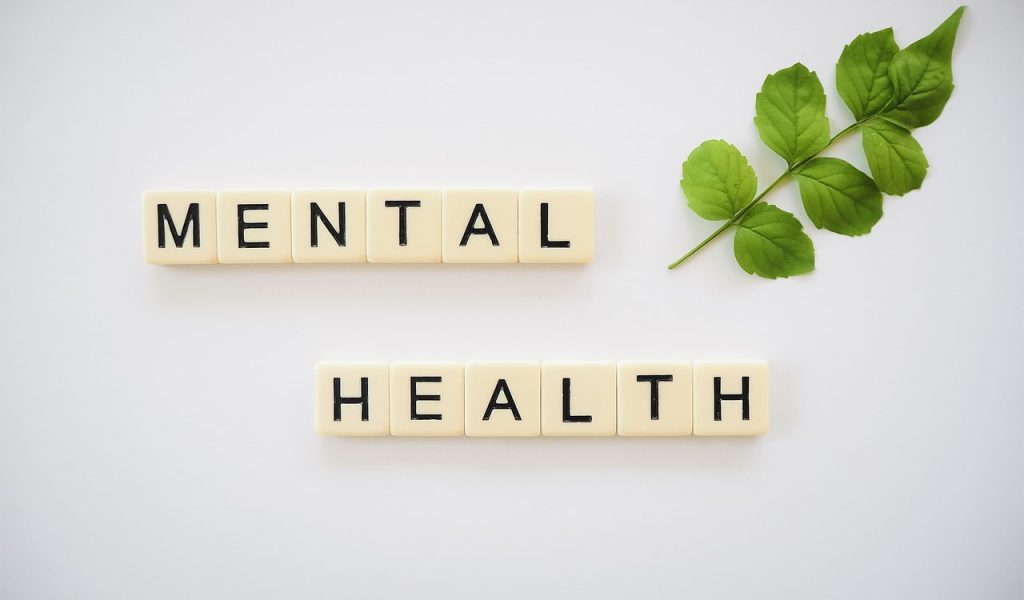In today’s fast-paced world, stress is everywhere. Work, family, and personal life can overwhelm us. But, learning to manage stress can lead to a healthier life. This article will show you how to handle modern stress and find peace again.
- Understand the impact of chronic stress on physical and mental health
- Identify personal stress triggers and develop coping mechanisms
- Incorporate mindfulness practices for immediate and long-term stress relief
- Prioritize self-care through nutrition, exercise, and work-life balance
- Explore natural and alternative methods for stress management
Understanding the Impact of Modern Stress on Health & Wellness
In today’s fast world, stress is a big part of life for many. Work and daily life pressures add up, affecting our health and happiness. Knowing how stress shows up is key to handling it and living a healthy lifestyle.
Physical Effects of Chronic Stress
Long-term stress can cause many physical problems. These include cardiovascular issues, weakened immune system, and chronic conditions. Stress hormones like cortisol can harm our bodies, leading to high blood pressure and heart disease risks.
Psychological Impact on Daily Life
Stress also affects our minds. It can lead to anxiety, depression and burnout. These mental health issues make it hard to focus, control emotions and connect with others, affecting our quality of life.
Social and Professional Consequences
Stress affects more than just us. It can harm our relationships, job performance and career growth. It’s vital to focus on preventive care and manage stress to live a balanced life.
| Physical Effects | Psychological Impact | Social and Professional Consequences |
| – Cardiovascular problems – Weakened immune system – Chronic conditions |
– Anxiety – Depression – Burnout |
– Strained relationships – Impaired job performance – Hindered career advancement |
By grasping how stress affects us, we can manage it better. This way, we can focus on preventive care for a better life.
Identifying Your Personal Stress Triggers and Patterns
Modern life can be tough, leading to more stress. The first step to manage stress is to know what triggers it for you. By figuring out what causes your stress, you can create self-care plans that work for you.
Start by thinking about when you feel most stressed. Ask yourself:
- What events or situations make you anxious?
- Are there certain tasks or duties that always stress you out?
- How do your thoughts and thinking patterns affect your stress?
- Do you notice any patterns in how you behave when stressed, like procrastination?
After finding your stress triggers, watch how your body and mind react. Notice physical signs like muscle tension or headaches. Also, pay attention to how you feel emotionally and mentally, like feeling irritable or having trouble focusing.
| Common Stress Triggers | Potential Physical Symptoms | Psychological Impacts |
| Deadlines and time pressures | Headaches, muscle tension, rapid heartbeat | Anxiety, irritability, difficulty focusing |
| Interpersonal conflicts | Digestive issues, fatigue, sleep disturbances | Feelings of frustration, resentment, emotional exhaustion |
| Financial worries | Chest pain, high blood pressure, insomnia | Overwhelming sense of worry, panic or hopelessness |
Exploring your stress triggers and patterns helps you understand what you need to do to feel better. This self-reflection is key to taking charge of your stress and improving your well-being.
Essential Mindfulness Techniques for Stress Relief
In today’s fast world, managing stress is key for health and happiness. Luckily, there are mindfulness techniques to help you relax now and reduce stress over time. Let’s look at some important methods.
Breathing Exercises for Immediate Calm
Focused breathing is a simple yet powerful tool against stress. Meditation and alternative medicine often use breathing exercises to relax quickly. Try the 4-7-8 method: breathe in for 4 seconds, hold for 7 and breathe out for 8. Do this a few times to reduce stress and find peace.
Guided Meditation Practices
Guided meditation offers a deeper meditation experience. These audio or video guides lead you through a structured practice. They help you focus and reach a deeper state of mindfulness. Whether it’s a body scan, mantra, or visualization, guided meditation is great for stress relief.
Mindful Movement and Body Awareness
- Gentle yoga and stretches help with body awareness and release tension from stress.
- Tai chi and qigong use slow movements for mental focus and physical alternative medicine benefits.
- A simple walking meditation is a powerful way to practice mindfulness and relieve stress.
By adding these mindfulness techniques to your daily life, you can manage stress better. This boosts your well-being and improves your life quality.
Creating a Sustainable Self-Care Routine
In today’s fast-paced world, keeping a healthy lifestyle is tough. Yet, it’s key to fight modern life’s stresses and find balance. By focusing on self-care, people can boost their health, work better and live better.
Sleep hygiene is a big part of self-care. Good sleep helps our bodies and minds recharge. To sleep well, stick to a schedule, avoid screens before bed and make your bedroom cozy.
Managing time well is also crucial. Good time management lets you enjoy life, exercise and relax while keeping up with work and personal life. Use tools and strategies to stay focused and balanced.
Doing things you love is also important. Whether it’s a hobby, spending time with friends, or being in nature, it helps reduce stress and makes you happier.
By adding these elements to your self-care routine, you can live a healthier, more balanced life. This approach helps you deal with life’s challenges and find personal fulfillment.
Nutrition and Exercise as Stress Management Tools
In today’s fast world, managing stress is key for our health. The right nutrition and exercise can help fight stress’s bad effects. Knowing which foods and workouts reduce stress can lead to a healthier life.
Stress-Reducing Foods and Supplements
A good diet can greatly reduce stress. Some foods and supplements calm and uplift us, helping in the fight against stress. For example:
- Omega-3 fatty acids in fish, nuts, and seeds reduce inflammation and boost brain function.
- Probiotics support gut health and serotonin production, key for mood.
- Chamomile, lavender, and herbal teas soothe the mind and body.
Exercise Programs for Mental Well-being
Along with a nutritious diet, physical activity is a strong stress fighter. Exercise relieves physical tension and boosts mental health. From high-intensity interval training to gentle yoga, many exercises improve mental well-being and stress resilience.
Balanced Diet Planning for Stress Control
Creating a balanced diet with stress-reducing foods and a regular fitness routine can change how we manage stress. By focusing on healthy eating and exercise, we improve physical health and mental well-being. This leads to a better quality of life.
Setting Boundaries in Work and Personal Life
In today’s fast world, keeping a good work-life balance is hard. One key way to manage stress and boost mental health is by setting clear boundaries. This section will look at how to set and keep these important boundaries.
Good communication is key to setting boundaries. Talk openly with your boss, coworkers, and family about what you need and can handle. Be clear about when you’re available and when you need time for yourself. This helps avoid confusion and makes sure your boundaries are respected.
Managing your time well is also vital. Focus on important tasks, say “no” to things that aren’t essential and take breaks from work when you’re supposed to. Make time for self-care, like exercise, mindfulness, and spending time with loved ones. These activities help reduce stress and show how important your personal well-being is.
| Boundary-Setting Strategies | Benefits |
| Communicate your needs clearly | Prevents misunderstandings and ensures your boundaries are respected |
| Prioritize tasks and learn to say “no” | Helps you manage your time and workload more effectively |
| Unplug from work during off-hours | Allows you to recharge and focus on self-care and personal relationships |
By setting and keeping healthy boundaries, you can find a better work-life balance. This leads to better mental health and self-care practices. Remember, your time and energy are precious. Taking care of yourself is crucial for success in today’s world.
Natural and Alternative Methods for Stress Relief
Many people are looking into natural and alternative ways to manage stress. This includes herbal remedies, aromatherapy, and traditional practices. These methods can help you find balance and well-being.
Herbal Remedies and Supplements
Herbs and supplements have been used for centuries to ease stress. Chamomile, lavender, and valerian root are known for their calming effects. You can drink them as teas or take them in capsule form.
Supplements like omega-3 fatty acids, ashwagandha, and rhodiola also help. They support the body’s stress response and boost resilience.
Aromatherapy and Essential Oils
The scent of essential oils can deeply affect our emotions and body. Aromatherapy uses these oils to relieve stress. Diffusing bergamot, ylang-ylang, or frankincense can calm you down.
Applying oils like lavender or lemon on your skin can also soothe your mind and body.
Acupuncture and Traditional Practices
Practices like acupuncture, Tai Chi, and Qigong are gaining popularity in the West. They help reduce stress and improve well-being. Acupuncture, in particular, can regulate the body’s stress response.
These traditional methods offer a holistic approach to managing stress. They help you find balance and resilience in today’s fast-paced world.
FAQ
What are the physical effects of chronic stress on health and wellness?
Chronic stress can harm your body. It can cause heart problems, weaken your immune system, and lead to other health issues. It’s key to manage stress to stay healthy.
How can identifying personal stress triggers and patterns help with managing stress?
Knowing what stresses you is the first step to better care for yourself. By figuring out what causes your stress, you can tackle it head-on. This way, you can find ways to improve your mental health.
What are some essential mindfulness techniques for stress relief?
Mindfulness can help a lot with stress. Techniques like breathing exercises, meditation, and yoga can calm you down. Adding these to your day can make you feel more relaxed and emotionally balanced.
How can nutrition and exercise help manage stress?
Eating right and staying active are big stress fighters. Foods and supplements that help with stress, along with regular exercise, can boost your health. A balanced diet and physical activity are great for managing stress.
What are some natural and alternative methods for stress relief?
There are many natural ways to ease stress. Herbal remedies, aromatherapy, and practices like acupuncture can help. Trying these holistic methods can add to your stress management plan.


